Nowhere to lay his head
 View from the apartment we stayed in while in Todi, Italy
View from the apartment we stayed in while in Todi, Italyon our recent vacation
In this week's Gospel reading, Someone comes up to Jesus as he and his disciples are going along the road. The person says, "I will follow you wherever you go." Jesus answers, "Foxes have holes, and birds of the air have nests; but the Son of Man has nowhere to lay his head." Jesus warns the one who wants to follow that he is homeless in this life. Jesus was dependent on the hospitality of others. His home base of operations was in Capernaum on the Sea of Gallilee, but he seems to have stayed there at the home of Simon Peter and others.
During our recent three-week trip to Italy and France, my wife and daughter and I greatly enjoyed the fact that we spent a week at an apartment in Todi, Italy and a week at an apartment in Villecroze, in the Provence region of France. It was so much nicer than bouncing from hotel to hotel to have our own place to which we could return and our own kitchen in which to cook meals. This highlighted for me the homelessness
 of Jesus. No, he wasn't homeless in the sense in which we mean it today as his life did not compare to the homeless who subsist in every large city around our country and in most countries of the world.
of Jesus. No, he wasn't homeless in the sense in which we mean it today as his life did not compare to the homeless who subsist in every large city around our country and in most countries of the world.Jesus lived as an itinerant preacher, much more closely to the way Francis of Assisi would live more than a millinea later as he walked around Italy and beyond on preaching missions. Jesus showed through his life on the road, what Francis wanted to later mirror, that his true home was and is in the kingdom of God. Jesus needed no roof to call his own as he was just passing through on a journey intended to bring us all to where he was.
Jesus lived constantinually as the guest, dependent on the hospitality of others and yet offered hospitality himself and sometimes played the host, as at the last supper. It is to this radical dependance on God that we are called. Even those of us who own homes and love to have a roof to call our own, are to place our trust not in those places or possessions, but in God. Right?
peace,
Frank+
The Rev. Frank Logue, Pastor
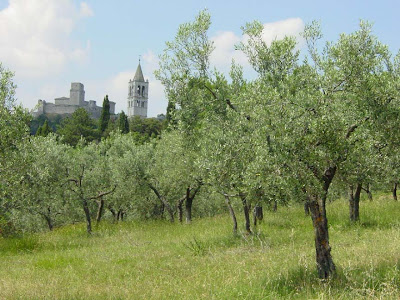 Assisi, Italy seen from an olive grove on the way to
Assisi, Italy seen from an olive grove on the way tothe church of San Damiano
Labels: Travel


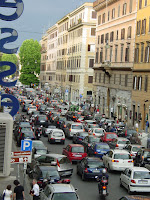


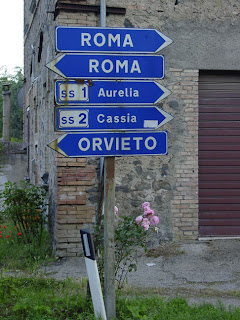
 This is where I should justify writing this with some nifty Gospel tie in. The problem is that "When in Romans, do as the Romans do" is more anti-Gospel than it is Gospel. Instead, I'll just say that even a priest can enjoy zipping along a winding Italian road sometimes doing well over what would be the posted speed limit in America. Maybe this isn't exactly teaching I'm doing at the moment. Perhaps this blog post is a confession.
This is where I should justify writing this with some nifty Gospel tie in. The problem is that "When in Romans, do as the Romans do" is more anti-Gospel than it is Gospel. Instead, I'll just say that even a priest can enjoy zipping along a winding Italian road sometimes doing well over what would be the posted speed limit in America. Maybe this isn't exactly teaching I'm doing at the moment. Perhaps this blog post is a confession.

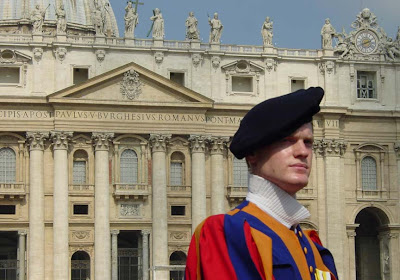



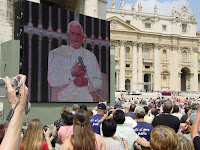
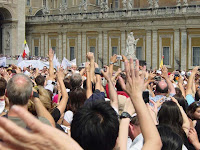
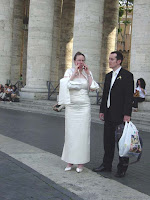



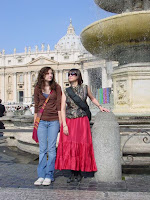




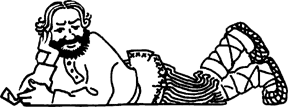




 The healing of the Gerasene demoniac was a major event that frightened the local people. They were, in fact, so frightened that they asked Jesus to leave them. When the former demoniac, now in his right mind, begged to go with Jesus, Jesus commanded him to remain in that town as a witness. Mark's account confirms that the former demoniac did just as Jesus suggested. He proclaimed the great things that Jesus had done for him, and those who heard him were amazed (Mark 5:20). What profound lessons do we learn from this?
The healing of the Gerasene demoniac was a major event that frightened the local people. They were, in fact, so frightened that they asked Jesus to leave them. When the former demoniac, now in his right mind, begged to go with Jesus, Jesus commanded him to remain in that town as a witness. Mark's account confirms that the former demoniac did just as Jesus suggested. He proclaimed the great things that Jesus had done for him, and those who heard him were amazed (Mark 5:20). What profound lessons do we learn from this? 
 I heard of a boy once who was brought up an atheist. He changed his mind when he saw that there were a hundred-odd species of warblers, each bedecked like to the rainbow, and each performing yearly sundry thousands of miles of migration about which scientists wrote wisely but did not understand.
I heard of a boy once who was brought up an atheist. He changed his mind when he saw that there were a hundred-odd species of warblers, each bedecked like to the rainbow, and each performing yearly sundry thousands of miles of migration about which scientists wrote wisely but did not understand. 
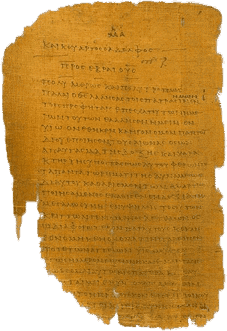
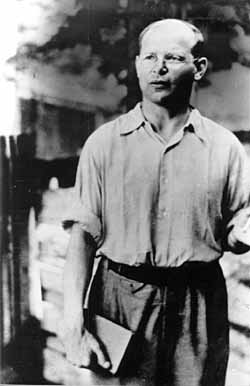 Grace without price; grace without cost! The essence of grace, we suppose, is that the account has been paid in advance; and, because it has been paid, everything can be had for nothing. Since the cost was infinite, the possibilities of using and spending it are infinite. What would grace be if it were not cheap?
Grace without price; grace without cost! The essence of grace, we suppose, is that the account has been paid in advance; and, because it has been paid, everything can be had for nothing. Since the cost was infinite, the possibilities of using and spending it are infinite. What would grace be if it were not cheap? Instead of loving what you think is peace, love others, and love God above all, and instead of hating the people you think are warmongers, hate the appetite and disorder in your own soul, which are also causes of war.
Instead of loving what you think is peace, love others, and love God above all, and instead of hating the people you think are warmongers, hate the appetite and disorder in your own soul, which are also causes of war. 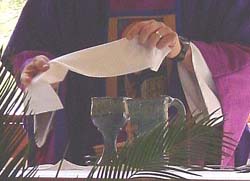 When a woman makes an altar cloth, so far as she is able, she makes every flower as lovely as the graceful flowers of the field, as far as she is able, every star sparkling as the glistening stars of the night. She withholds nothing, but uses the most precious things she possesses. She sells off every other claim upon her life that she may purchase the most uninterupted and favorable time of the day and night for her one and only, for her beloved work. But when the cloth is finished and put to its sacred use: then she is deeply distressed if someone should make the mistake of looking at her art, instead of the meaning of the cloth; or make the mistake of looking at a defect, instead of at the meaning of the cloth. For she could not work the sacred meaning into the cloth itself, nor could she sew it on the cloth as though it were one more ornament.
When a woman makes an altar cloth, so far as she is able, she makes every flower as lovely as the graceful flowers of the field, as far as she is able, every star sparkling as the glistening stars of the night. She withholds nothing, but uses the most precious things she possesses. She sells off every other claim upon her life that she may purchase the most uninterupted and favorable time of the day and night for her one and only, for her beloved work. But when the cloth is finished and put to its sacred use: then she is deeply distressed if someone should make the mistake of looking at her art, instead of the meaning of the cloth; or make the mistake of looking at a defect, instead of at the meaning of the cloth. For she could not work the sacred meaning into the cloth itself, nor could she sew it on the cloth as though it were one more ornament.
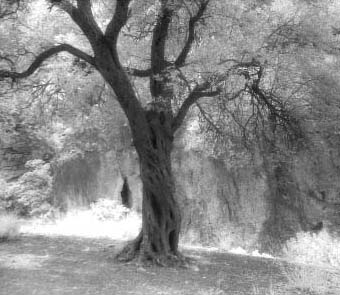
 I do not believe that I shift gear in some strange intellectual way when I move from science to religion. In particular, I do not claim that religious belief springs from some mysteriously endorsed and unquestionable source of knowledge that is not open to rational assessment and, if necessary, to reassessment. Theology has long known that our images of God are inadequate to the infinite richness of his nature; that human concepts of God are ultimately idols to be broken in the face of the greater reality.
I do not believe that I shift gear in some strange intellectual way when I move from science to religion. In particular, I do not claim that religious belief springs from some mysteriously endorsed and unquestionable source of knowledge that is not open to rational assessment and, if necessary, to reassessment. Theology has long known that our images of God are inadequate to the infinite richness of his nature; that human concepts of God are ultimately idols to be broken in the face of the greater reality. I don't know that I follow C.S. Lewis' advice to the letter, but I do know that the passage above has been helpful in redirecting me back into the deep traditions of Christianity to read spiritual classics, which have earned their place by speaking to generations of readers. Books such as the slim little Practicing the Presence of God of Brother Lawrence, or the anonymous Russian work The Way of a Pilgrim leap to mind. But there are other spiritual classics such as St. Augustine's Confessions and the anonymous The Cloud of Unknowing and many others. Additionally, there are more recent works that can said to have already have stood the test of time including the writings of Thomas Merton as well as those of C.S. Lewis himself.
I don't know that I follow C.S. Lewis' advice to the letter, but I do know that the passage above has been helpful in redirecting me back into the deep traditions of Christianity to read spiritual classics, which have earned their place by speaking to generations of readers. Books such as the slim little Practicing the Presence of God of Brother Lawrence, or the anonymous Russian work The Way of a Pilgrim leap to mind. But there are other spiritual classics such as St. Augustine's Confessions and the anonymous The Cloud of Unknowing and many others. Additionally, there are more recent works that can said to have already have stood the test of time including the writings of Thomas Merton as well as those of C.S. Lewis himself.  One way to start broadening your selection is to visit the bookshelf near the coffee pot and coke machine at King of Peace where you can check out some books for free, that have already stood the test of time. You may also want to visit
One way to start broadening your selection is to visit the bookshelf near the coffee pot and coke machine at King of Peace where you can check out some books for free, that have already stood the test of time. You may also want to visit  To learn something by heart is a concept more in tune with the ancient world than with our own, and the student, apparently feeling that he had been misunderstood, asked with some exasperation, "What am I to do...when I have difficulty affirming parts of the Creed—like the Virgin Birth?" And he got the same response. "You just keep saying it. Particularly when you have difficulty believing it. You just keep saying it. It will come to you eventually." The student raised his voice: "How can I with integrity affirm a creed in which I do not believe?" And the priest replied, "It's not your creed, it's our creed," meaning the Creed of the entire Christian church. I can picture the theologian shrugging, as only the Orthodox can shrug, carrying so lightly the thousand-plus years of their liturgical tradition: "Eventually it may come to you," he told the student. "For some it takes longer than for others..."
To learn something by heart is a concept more in tune with the ancient world than with our own, and the student, apparently feeling that he had been misunderstood, asked with some exasperation, "What am I to do...when I have difficulty affirming parts of the Creed—like the Virgin Birth?" And he got the same response. "You just keep saying it. Particularly when you have difficulty believing it. You just keep saying it. It will come to you eventually." The student raised his voice: "How can I with integrity affirm a creed in which I do not believe?" And the priest replied, "It's not your creed, it's our creed," meaning the Creed of the entire Christian church. I can picture the theologian shrugging, as only the Orthodox can shrug, carrying so lightly the thousand-plus years of their liturgical tradition: "Eventually it may come to you," he told the student. "For some it takes longer than for others..."
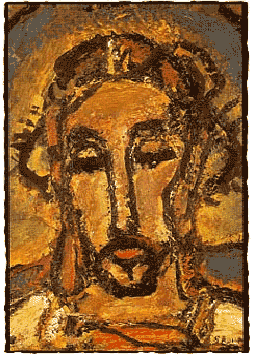 What will happen is that I will go in on Sunday morning in full touch with the absurdity of the situation, feeling like a faker and a hypocrite. Then, during Eucharist, I will lay hands on the first head that comes before me, and I will say the prayer for healing. And I will be completely present in the moment, which is transported outside of space and time while still being firmly rooted in the here and now, and God's grace will flow through me. I will do this again and again, for each person who comes to me. When it is over, I will realize once again why I continue in this ministry. I am not a faker and a hypocrite. I do not have healing power. All I can do is humble myself, put myself into the background, and let God work through me.
What will happen is that I will go in on Sunday morning in full touch with the absurdity of the situation, feeling like a faker and a hypocrite. Then, during Eucharist, I will lay hands on the first head that comes before me, and I will say the prayer for healing. And I will be completely present in the moment, which is transported outside of space and time while still being firmly rooted in the here and now, and God's grace will flow through me. I will do this again and again, for each person who comes to me. When it is over, I will realize once again why I continue in this ministry. I am not a faker and a hypocrite. I do not have healing power. All I can do is humble myself, put myself into the background, and let God work through me.







0 Comments:
Post a Comment
<< Home